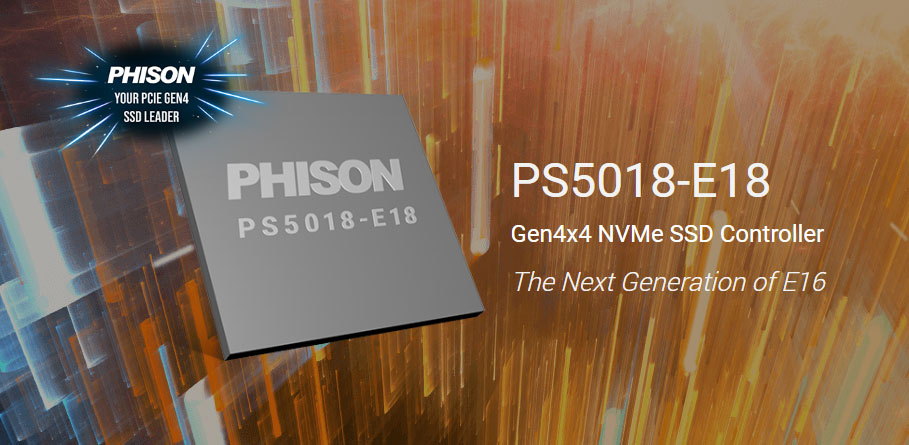Consumer SSD speeds are on track to hit a mind-boggling 7GB/s next year
Way more speed than is needed for gaming, but we'll take it anyway.

Phison is a name you might not be all that familiar with, but the company is one of the main reasons why we are seeing consumer SSDs push the speed envelope, with a handful of drives touting up to 5GB/s of sequential read performance when paired with an X570 motherboard. It's also the reason why we will see SSDs reach even faster speeds next year, at 7GB/s.
Where Phison comes into the mix is with the controller that is powering all of these speedy SSDs. One thing these blazing-fast 5GB/s drives have in common is they use Phison's PS5016-E16 controller.
Looking ahead, Phison is already talking about its next-generation PS5018-E18 controller. It is being designed on a 12nm process node, and will be capable of enabling 7GB/s speeds for both reads and writes, according to Phison. It will also support capacities of up to 8TB.
There are some caveats that come with this type of pedal-to-the-metal performance. For one, you need a motherboard that supports the PCI Express 4.0 spec, and so far only boards based on AMD's X570 chipset qualify (technically, some X470 motherboards could be updated to support PCIe 4.0, but to prevent confusion, AMD has instructed motherboard makers not to go that route).
Cooling is another factor. One way SSDs deal with heat is by throttling when things get too hot. So to maintain the kind of speeds that PCIe 4.0 drives can achieve, expect adequate to play a critical role.
Finally, this all overkill for a PC that is strictly used for gaming. The best SSD for gaming can still be a SATA-based drive, where speeds top out at around 550-580MB/s. Where faster speeds come into play is when you are shuffling around lots of data, like transferring 4K movie files, to give an example.
All that said, Phison still deserves a fist-bump for enabling incredibly fast speeds. If nothing else, faster drives could potentially push down the price of slower models.
Keep up to date with the most important stories and the best deals, as picked by the PC Gamer team.
As for where things will ultimately go, 7GB/s is probably the end of the road for M.2 NVMe SSDs, as it pertains to plugging them into an embedded M.2 slot. The theoretical maximum for PCIe 4.0 x4 is around 7.88GB/s. Some loss of performance is inevitable due to overhead. That said, I've reached out to Phison and asked if the company thinks even faster drives will arrive before PCIe 5.0 permeates the market, and will update this article when/if I hear back.
Paul has been playing PC games and raking his knuckles on computer hardware since the Commodore 64. He does not have any tattoos, but thinks it would be cool to get one that reads LOAD"*",8,1. In his off time, he rides motorcycles and wrestles alligators (only one of those is true).


